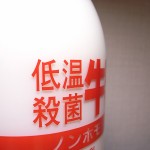Japan radiation from Fukushima spurs concern for contaminated food
Japan radiation from the damaged Fukushima plant have reached levels which are "significantly higher" for food consumption according to the International Atomic Energy Agency, and health officials called for a ban of agricultural products from the vicinity.
The World Health Organization warned that the Japan radiation that contaminates food is more dangerous to human health than airborne particles because the latter can be dispersed by the wind or rain in just a few days.
Officials in the disaster-hit Asian country are mulling a food ban or at least placing some restrictions on food shipments from the affected region.
"They're going to have to take some decisions quickly in Japan to shut down and stop food from being used completely from zones which they feel might be affected," the agency's Gregory Hartl told the Associated Press.
Deliveries of spinach and milk have been restricted by Japanese authorities. Some vegetables have been tested to contain high amounts of radiation in at least three prefectures. Tap water in a village near the Fukushima power plant has also been found to be contaminated with radiation and residents have been told not to use it even though the levels measured were deemed not dangerous to human health.
Because of growing fears about Japan radiation, China and other neighboring countries in Asia have begun to test Japanese food imports for radiation. The WHO said damage to health from radiation depends on the kind and amount of food consumed.
It warned that delaying action to ban shipments of contaminated products may worsen the public health scare. The U.N. health agency said it is urging authorities to act swiftly to contain the further spread of Japan radiation.
